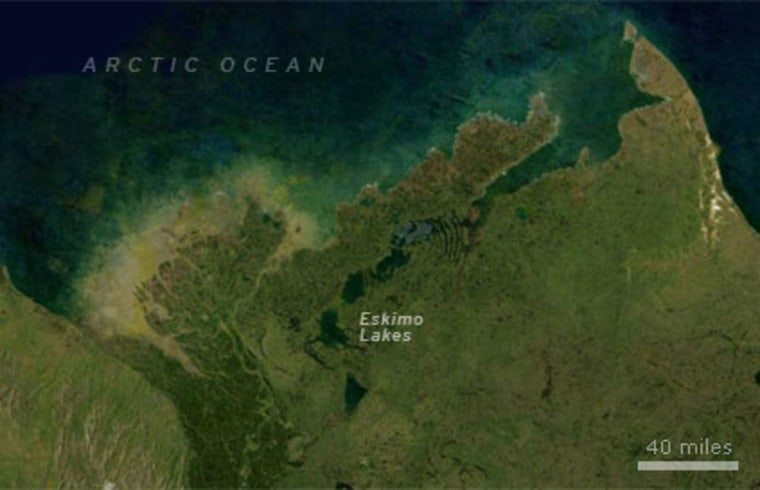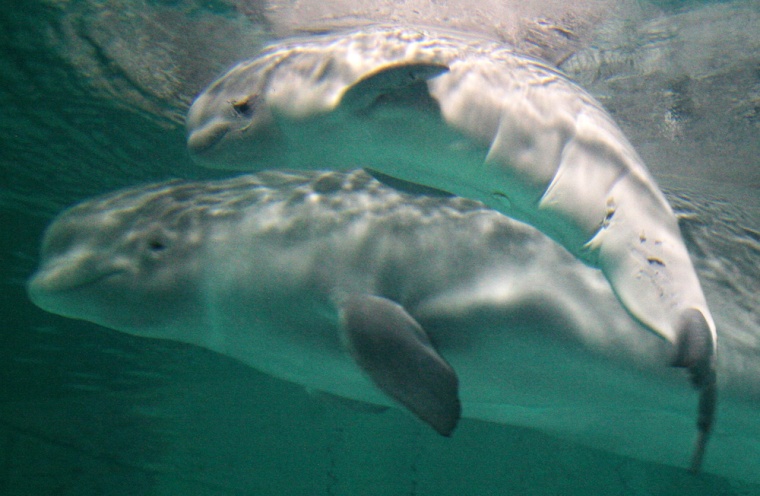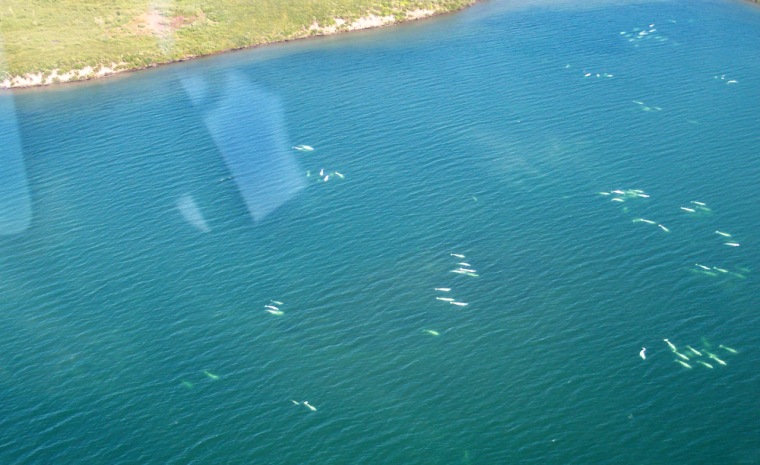Arctic hunters have begun killing beluga whales that have been trapped for weeks and now have only one small air hole remaining.
"The humane harvest has begun with nine so far," Robbi Jordan, a Fisheries and Oceans Canada spokesman, told MSNBC.com on Monday.
The hunters estimate "there are only about 20 or 30; much less than the 80 or so they first thought, although it is hard to tell," Jordan added. "The whales are in fairly good shape though starting to get thin."
Inuits living near Tuktoyaktuk, in the far Northwest Territories, had hoped the belugas would find their way back to the Beaufort Sea before ice blocked the way out. Many did not make it and they are trapped, having to share a small hole in the ice.
"We're going to have people go out to the site and harvest as many as we can," said Paul Voudrach, head of the Tuktoyaktuk hunters and trappers committee and local representative of the territorial government's Environment Department.
About 250 belugas, a species that is not endangered, were first spotted in early August by hunters in the Eskimo Lakes area south of Tuktoyaktuk, a string of saltwater inlets which are linked to the ocean through a 980-foot-wide channel.
There were still about 60 of the mammals left by early November, but the area, also known as the Husky Lakes, has seen the channel freeze over and the whales have just one air hole left.
Residents were cheering for the belugas to escape, despite the fact that each animal could provide enough meat and "muktuk" — skin and blubber usually served raw — to last a couple of large families through the winter.
Storm froze channel
But an Arctic storm last weekend froze the channel solid and left the whales with a single breathing hole. Officials determined Thursday that escape was now impossible and the whales would suffocate or starve.
Killing the whales now, while they are still in good shape, is better than leaving them to slowly freeze under the ice, Voudrach said Thursday.

"(People) don't like seeing animals suffer. Right now we're looking to take all of them that we can," he said.
Hunters were gathered around the breathing hole waiting for the belugas to surface for air. One man harpoons the animal and another shoots it with a rifle. Six others haul the whales out of the water, he said.
They are being butchered right there on the ice and the meat and muktuk is being distributed to area communities.
Although most hunters got enough whale meat during this summer's hunting season, some could still use more, said Chuck Gruben, who was heading up the hunt.
"You just look at it as food on the table. If we just leave them there, they're going to freeze and that's not only a waste of an animal, it's a waste of food."
Two-week process
Voudrach said rescue options that involve relocating the animals would be “next to impossible” given the scope of the waterway, made up of a string of lakes about 25 miles long with water up to 100 feet deep.

Whales enter the Husky Lakes waterway infrequently. Voudrach said the last time was in 1994, and before that in 1989, when, he said, hunters waited too long to harvest 125 trapped belugas. By the time they did, the whales did not have enough blubber to be salvaged.
Whales usually leave the area in late August and travel to the Bering Sea.
